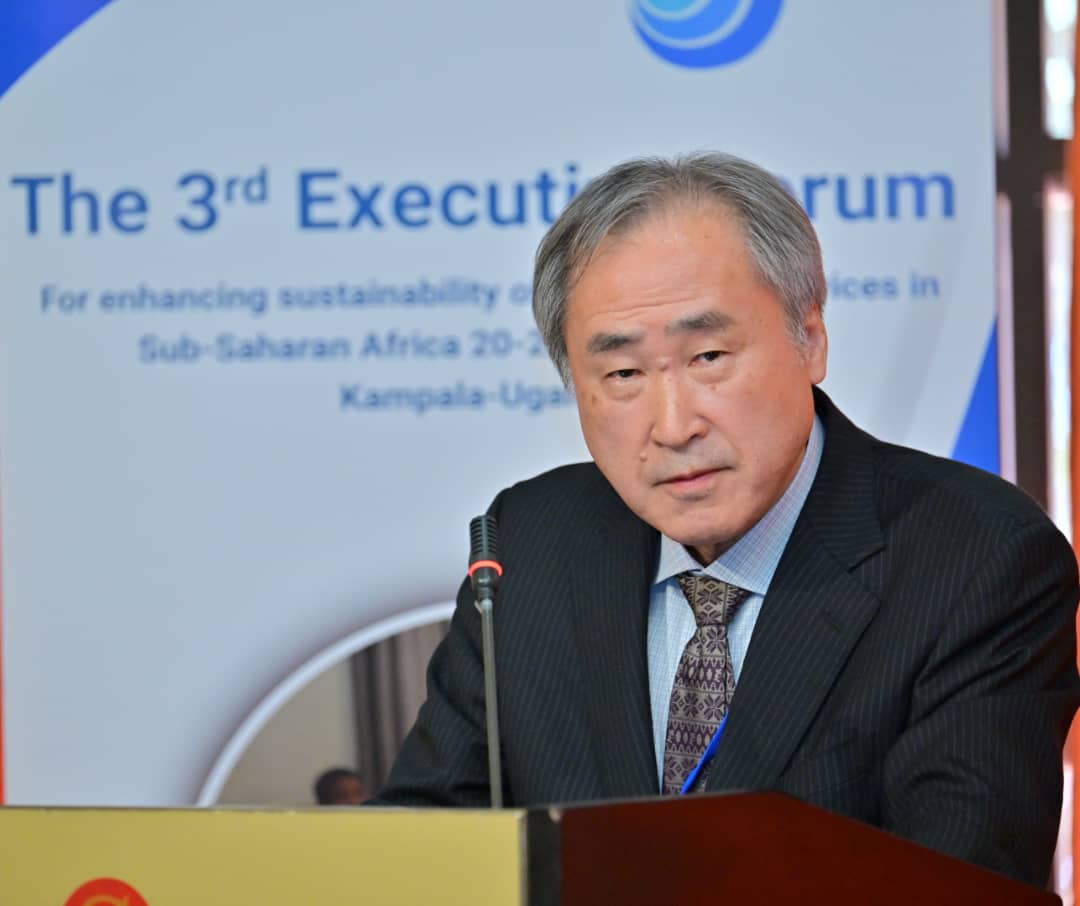By Felix Oketcho
Despite financial Constraints, Japan International Cooperation(JICA) have commited to financing water and sanitation programmes for Sub Saharan Africa.
JICA Senior Advisor for Water Supply Yokota Yoshiaki told an Executive Forum of water utility experts at the 3rd Water Executive Forum held at Speke Resort Munyonyo in Kampala on Saturday.
“Despite financial challenges JICA will continue with its Water and sanitation capacity training programmes to ensure that there Sustainable Development Goals are achieved. We commit to support executive forum programmes in our project areas,” he announced.
” Water Executive Forum started in 2019. And, I am one of the members who has been participating since the first Forum. Whether Asian Experiences of water utilities are applicable in Africa or not JICA started to learn more deeply about the situation of water utilities in Africa. And the forum also provided top management of water utilities with a platform to learn each other,”
he said.
” Six years later I have felt some changes of course there are still many challenges like financing gap, high NRW level, low tariff, etc, but such changes are emerging in many countries:like growing confidence and spirit of self-reliance, with local and regional resources, Careful mind of overreliance on external supports and rising strong leadership of management. I think all are good signs of growing water utilities, “Yokota explained.
Dr Rose Kaggwa, NWSC’s Senior Director of Business and Scientific Services lauded JICA’s longstanding partnership, particularly in capacity-building and skills development while emphasing the effectual impact of JICA’s training programs on NWSC staff, noting that the knowledge and skills acquired have contributed significantly to the Corporation’s service delivery. She however did not shy away from echoing ongoing operational challenges, hinting on the rising costs of energy and chemicals exacerbated by the deteriorating quality of water sourced from Lake Victoria, as well as the persistent issue of water theft.
Dr. Kaggwa appealed for continued support from JICA, particularly in the form of scholarships and advanced training programs in critical areas such as water supply management, water quality improvement, non-revenue water (NRW) reduction, and wastewater management. She also expressed optimism that with enhanced collaboration, NWSC could further strengthen its ability to meet the growing demands of the communities it serves.
JICA is currently operating about 30 water projects in African continent. Among which, one thirds are capital investment projects through grants or loans. The rests are capacity development projects. Under such projects JICA has been dispatching many Japanese experts to work together with you to address crucial challenges which are hindering the growth of water utilities, like NRW reduction, inefficient operation & management, etc.
Thus, JICA is continuing to support the growth of water utilities. But it is important to say that we are not only giving you but also we are getting from your side. Thinking together and teaching each other is more and more getting important. So, Let us take this momentum generated during this forum and turn it into actionable steps that will drive tangible improvements in our water family. Together, we can overcome the challenges and build a future where every person has access to safe, reliable, and affordable water services.
Japan International Cooperation Agency (JICA) has been supporting the National Water and Sewerage Corporation (NWSC) in Uganda since the two organizations formed a partnership. JICA’s support includes training, benchmarking, and technical expertise.
Impact of JICA’s support
JICA’s support has helped improve water and sanitation standards in Uganda and Sub-Saharan Africa. It has also helped contribute to achieving Sustainable Development Goal (SDG) 6, which is universal access to safely managed water and sanitation by 2030.

